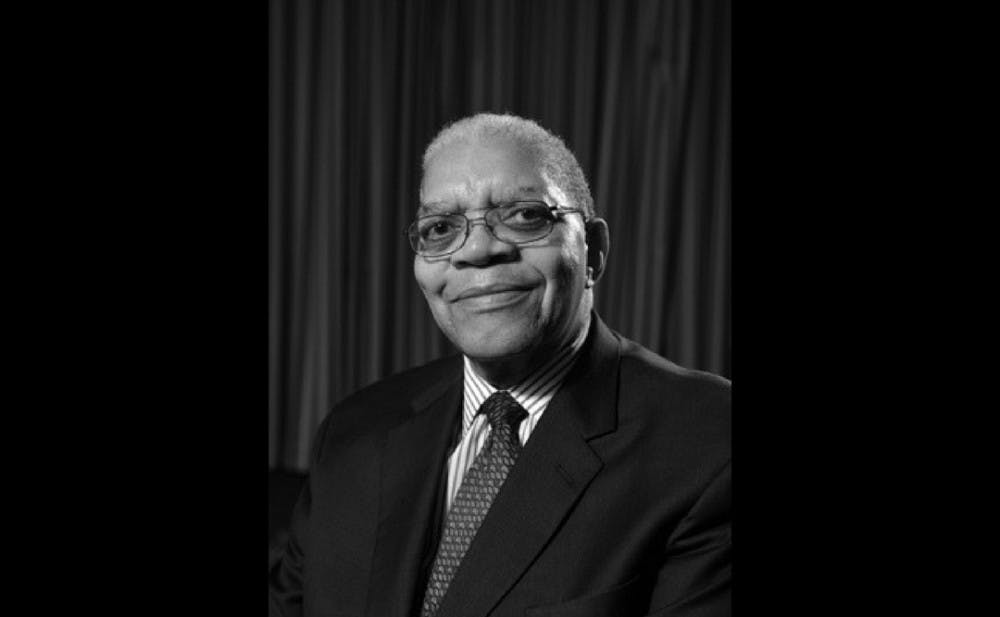A bipartisan group of U.S. senators has introduced a resolution honoring the life of Samuel DuBois Cook, the first African American to hold either a regular or tenured faculty appointment at a predominantly white Southern college or university.
Cook, who taught at Duke from 1966 to 1974 and was the University’s first black faculty member, died in May at the age of 88. The senate resolution recognizes Cook for breaking racial barriers among many other achievements.
“The U.S. Senate’s recognition of Dr. Samuel DuBois Cook’s lifetime of accomplishments is a signal moment,” William Darity Jr., director of the Samuel DuBois Cook Center on Social Equity, wrote in an email. “It inspires us to work even harder to make Duke’s Cook Center a site where principled scholarship carries his remarkable legacy forward.”
Massachusetts Sen. Elizabeth Warren introduced the resolution alongside North Carolina Sens. Thom Tillis and Richard Burr and Louisiana Sen. Bill Cassidy. Sen. John Kennedy, also from Louisiana, has since signed on as a fourth cosponsor. The resolution has been referred to the Senate Committee on the Judiciary.
"Dr. Cook was a leader in education and social justice,” Warren said in a press release. “He helped open doors for educators of different backgrounds to enter academia and have a voice at colleges and universities.”
Burr also signaled his appreciation for the long-time educator, saying that Cook's accomplishments as a scholar and luminary at Duke "marked an important milestone for diversity in academia."
"I'm thankful that Dr. Cook called North Carolina home during his time at Duke, and proud that the Senate can recognize the great achievements of his life," Burr said in the release.
Born in Georgia, Cook was a friend and classmate of the Rev. Martin Luther King Jr. He attended Morehouse College and Ohio State University and served in the U.S. Army during the Korean War before beginning his teaching career. He taught at several universities prior to becoming a faculty member at Duke in 1966.
With an expertise in political science, Cook “endeavored to advance interracial harmony” and “distinguished himself as an educator, scholar, thinker, activist, and public servant,” the Senate resolution reads. He was “considered to be a trailblazer who lived a life of integrity.”
In 1974, Cook left Duke to become president of Dillard University, where he served for almost 23 years. Cook was selected to Duke's Board of Trustees—for which he later became a trustee emeritus—in 1981. He was later appointed to the National Council on the Humanities by Jimmy Carter and the United States Holocaust Memorial Council by Bill Clinton.
In his honor, Duke established the Samuel DuBois Cook Society in 1997 to recognize, celebrate and affirm the presence of African American students, faculty and staff on campus. Today, Duke’s Samuel DuBois Cook Center on Social Equity is a collaborative devoted to research on inequality.
“Cook has a special place in Duke’s history as part of his distinguished legacy," wrote Michael Schoenfeld, vice president for public affairs and government relations, in an email. “The bipartisan support for this resolution shows why Dr. Cook was respected and admired as an educator and a leader.”
Members of the campus community remember Cook for his dedication to social justice and equality and his passion for higher education.
Peter Fish, professor emeritus of political science and law, wrote in an email that “Cook was keenly interested in the revival of downtown Durham, which in the early 1970s was still recovering from the throes of urban renewal.”
“I have good memories of him,” Fish wrote. “He went on to make important contributions to higher education in the country.”
Get The Chronicle straight to your inbox
Signup for our weekly newsletter. Cancel at any time.

